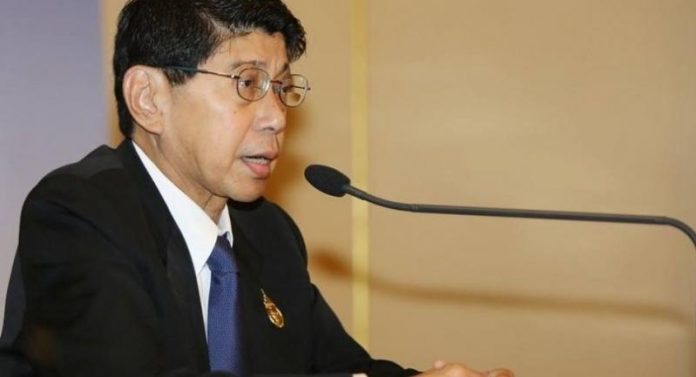Thailand-
Deputy Prime Minister Wissanu Kreangam told the Associated Press this afternoon that Thai Prime Minister Prayut Chan-O-Cha has ordered the government to conduct an in depth comparison of the legal support that can be provided to control the Covid-19 Coronavirus situation if the government cancels the current Emergency Decree.
The Emergency Decree to control the Covid-19 Coronavirus gives the Prime Minister and the Center for Covid19 Situation Administration, or CCSA extraordinary powers to control the virus, such as implementing curfews, travel restrictions, not allowing provincial governors the full ability to implement or remove measures for their provinces, specific bans on mass gatherings, draconian fines and prison time for violations, etc. The current decree is scheduled to end on the 31st of May, in about two weeks.
Thailand recorded a total of zero cases of the Covid-19 Coronavirus today for the second time this week and has been in the single digits in terms of new cases, many imported or in the Deep South at the Malaysian border, for weeks.
However, according to Deputy Prime Minister Wissanu, there are several factors the government has to take into consideration in terms of whether or not to continue the emergency decree besides just the current number of cases.
One of the biggest concerns, according to Wissanu, is that by putting the power back in the hands of Governors to fully decide upon measures in their province that the potential for some Governor’s to be substantially more relaxed or loose with measures, or some to be significantly stricter, would be inevitable. The Chonburi Governor, which includes Pattaya, has personally stated that he would support more relaxed measures in order to get areas like Pattaya City, where nearly 80% of the local industry is in the hospitality and entertainment fields, open. Phuket, despite being a recent hot zone, has also stated that they would like to see domestic tourism options open faster due to a high amount of unemployed on the island.
A second major concern would be the ability to properly be able to manage the situation across the country and the legal support to do so under regular laws, which is why the Prime Minister has ordered the study to compare the options available.
The country is currently in the middle of a cautious, slow, phased approach to unlocking businesses and the economy which has earned mixed reviews, with many calling for a faster re-opening based on the number of cases in the country. However, the current Emergency Decree, if cancelled, would end in the middle of this phased reopening, drawing concerns that some provinces and regions may choose to “go their own path” towards re-opening businesses and venues against the advice of medical professionals from the CCSA.
The legal study of the possible strengths and opportunities of canceling or continuing the Emergency Decree will take at least the next week. A final decision, which would need the approval of the National Security Council and the Thai Cabinet, would likely take effect on or around the weekly Cabinet meeting on the last week of this month.
Wissanu noted that the current ban on international inbound travel was controlled by regulations from the Civil Air Authority of Thailand, or CAAT, and would not be effected by the emergency decree if the CAAT decided to, as many experts believe is likely, continue the ban on nearly all inbound international travel except for repatriated Thai nationals. Wissanu stated that keeping borders tightly controlled including air, sea and land is critical to controlling the virus at this time.




